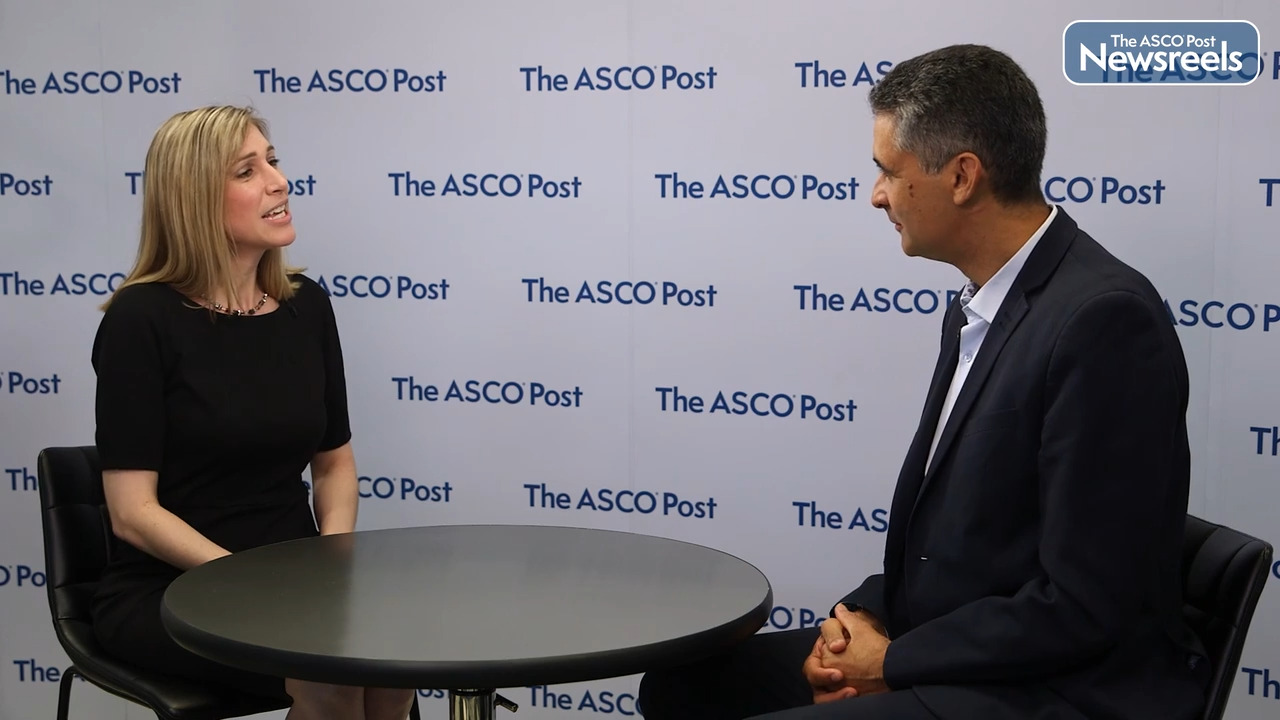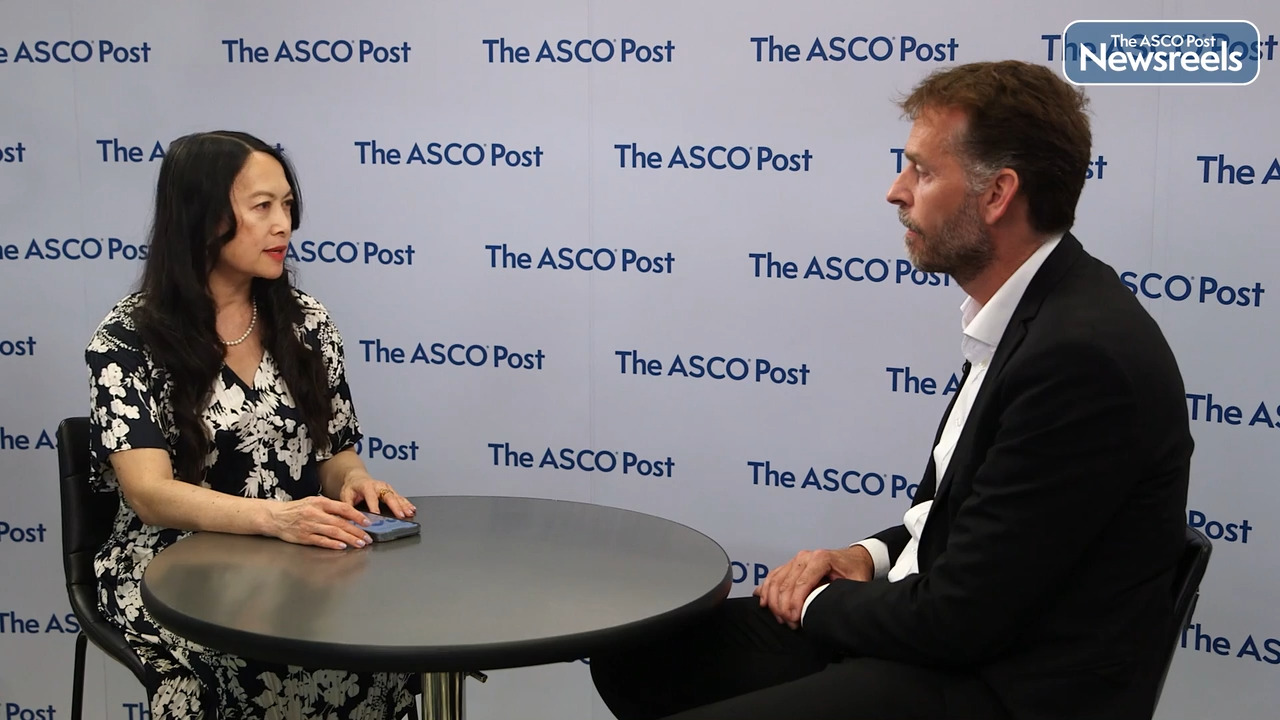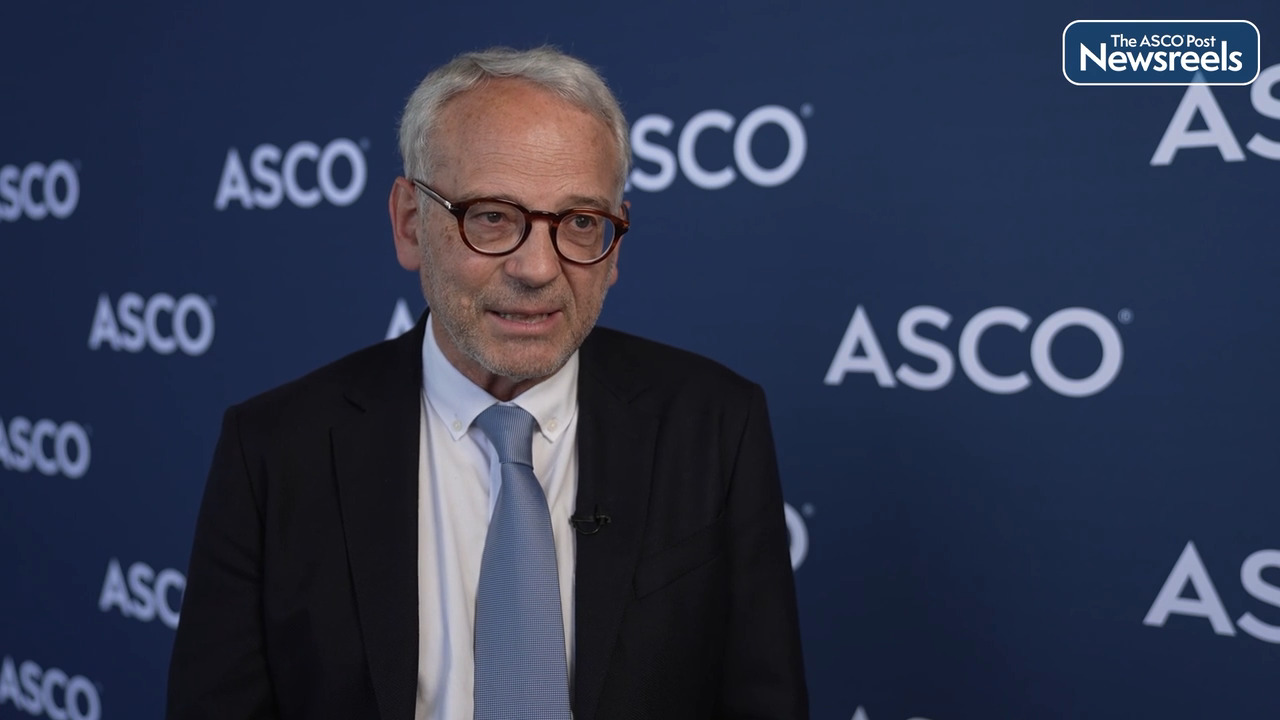Transcript
Disclaimer: This video transcript has not been proofread or edited and may contain errors.
Shailender Bhatia:
Merkel cell carcinoma is a very aggressive skin cancer. There are two known causes of this cancer, one is the Merkel cell polyoma virus, and the other is ultraviolet radiation exposure. Now, because of both of those causes, the cancer turns out to be very immunogenic. In the virus-positive cancers, that's due to the presence of the non-self viral antigens, and in UV exposure-related cancer, it is the high tumor mutational burden, which leads to expression of neoantigens. Now, because of this immunogenicity, there has been a lot of interest in trying different immunotherapies. There are three immunotherapies that are already FDA approved, avelumab, pembrolizumab, and most recently, retifanlimab, and these drugs work very well in a subset of patients with metastatic disease. The response rates are high, around 50% or so, and the responses tend to be very durable. However, there's a significant proportion of patients who do not respond, and the study that I'm going to be talking about today essentially pertains to improving the response rates in the frontline setting.
Just to provide a little bit of background for our study, there was a recent study, that was published by the Moffitt Group, that also looked at these drugs, nivolumab in combination with ipilimumab, and they looked at a cohort of 24 patients who had never had immunotherapy before, and they reported an astounding response rate of 100%. Everybody in that study responded, suggesting that the combination of NIVO and IPI may actually be a way to have a higher response rate in the frontline setting. So today, I'm going to present the results of our study, which is using the same schedule of NIVO and IPI as the Moffitt study, but was done several years prior to the Moffitt study that was completed.
So just for the background of our study, we had two cohorts, one was nivolumab monotherapy, and the other one was NIVO plus IPI. Again, the dose in the NIVO plus IPI was NIVO given every two weeks, at the standard dose of three milligram per kilogram, and IPI was given at one milligram per kilogram every six weeks, similar to the Moffitt study. So the important thing to note is that our study was a non-randomized study. The first cohort just investigated NIVO monotherapy, and when that cohort was full, the other cohort opened up, which investigated NIVO plus ipi. So in a way, today, we'll be comparing the results of these two cohorts, but just to caution that this was a non-randomized study.
Importantly, our study did not allow prior immunotherapy, so these are all immunotherapy-naive patients. A very small proportion got prior chemotherapy, but that does not change the main message of our study. Just to summarize the results, similar to other PD-1 and PD-L1 agents, we saw a very high response rate in both cohorts. The response rate was around 60% in the NIVO cohort, and 58% in the NIVO plus IPI cohort. In the subset of patients who were previously untreated, the response rates were somewhat higher than those numbers. Now, surprisingly, and in contrast with the Moffitt study, we did not see a significant increase in the response rates or other efficacy outcomes with NIVO plus IPI. So as I said, the response rate was almost similar, but importantly, the progression-free survival, the overall survival, and even the duration of response data, actually tended to be inferior in the NIVO plus IPI cohort, which was somewhat surprising.
So just to dive into some of the reasons for why that might have been, we looked at the toxicity data. Actually, the toxicity data suggests that we were getting more immune activation in patients who got NIVO plus IPI. The rate of grade three or higher adverse events was 46% in the NIVO plus IPI cohort, and was 28% in the NIVO cohort. So we were getting more immune activation, but for some reason, that immune activation did not translate into improved efficacy outcomes. So the results, again, are in sharp contrast with the Moffitt study, which suggested 100% response rate with NIVO plus IPI.
So where does our data and Moffitt data lead us? I think we have to just keep in mind that all of these studies in an uncommon cancer like Merkel cell have very small number of patients, so the results could be biased by selection biases and other confounders, so we just have to be careful in not overinterpreting the results. But nevertheless, I think it's important to state that there is this question of using combination immunotherapy to improve upfront responses in an immunogenic cancer like Merkel cell, and I think there is a need for doing a more rigorous and larger study to answer this question more definitively.





